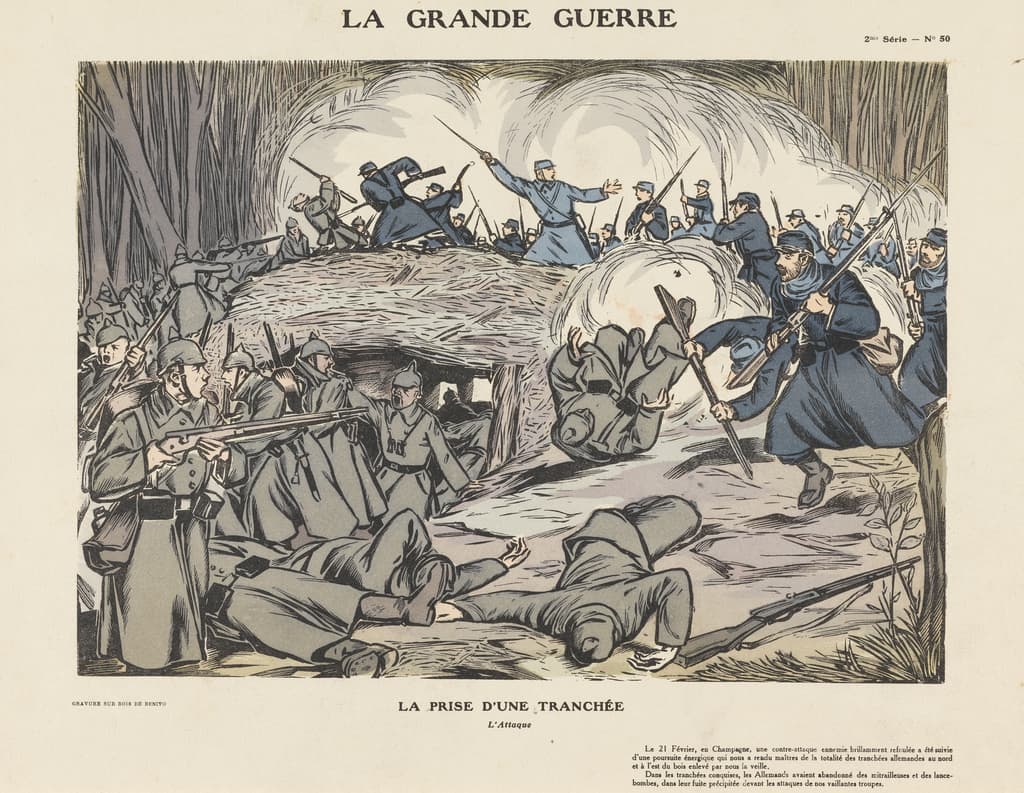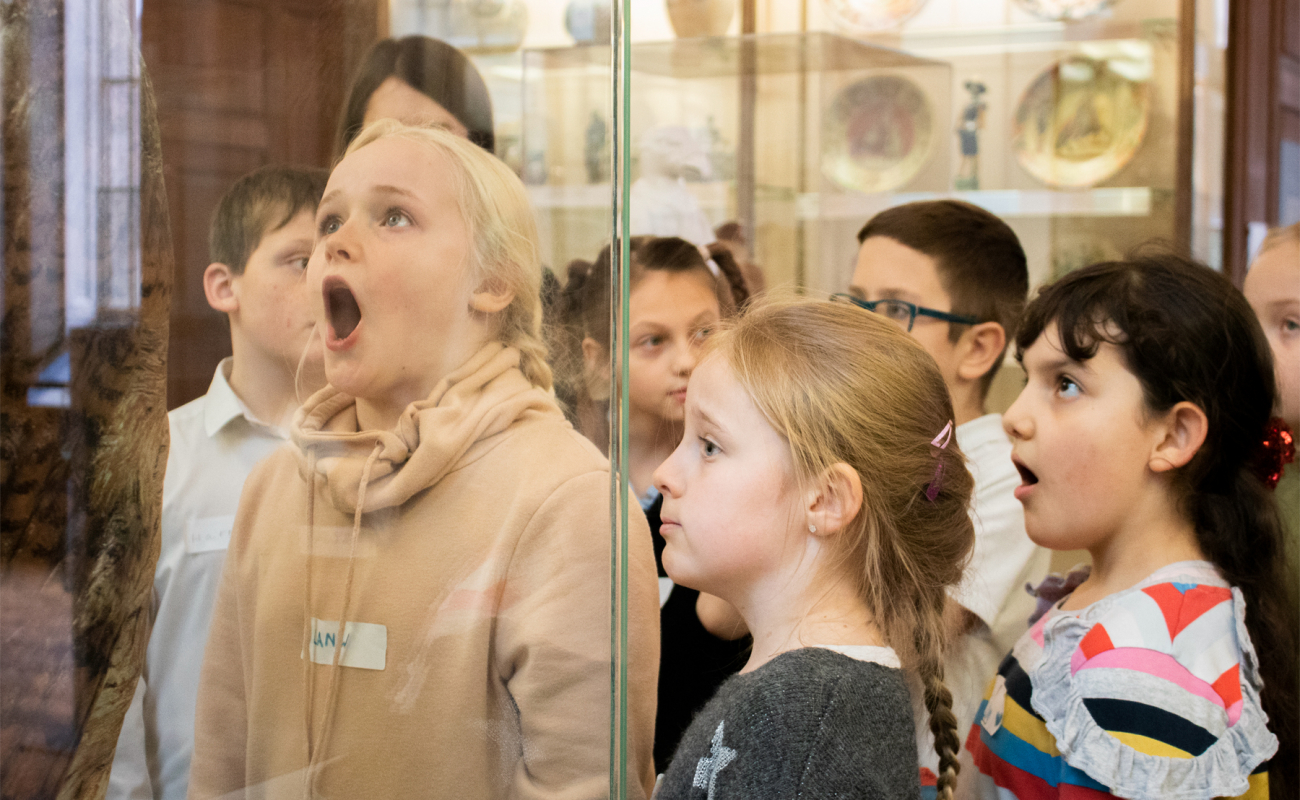
Eduardo Garcia Benito (1891-1981)
La prise d’une tranchée…
The taking of a trench. The attack.
Woodcut with hand colouring through stencils. Publisher: Tolmer & Co. 1915
Given by Sophie Gurney 1994
No. 50 from the 2nd series La Grande Guerre
P.52-1994
With this next print the focus swings back to the Champagne region. France launched an offensive here in December 1914 but had received heavy casualties for not much territorial gain. After the early battles both sides dug parallel defensive trenches along the river Aisne. They were a huge feat in themselves, stretching from the Swiss border to the English Channel by mid-October.
Trench warfare in itself was not new, but it had not been seen or endured on this scale before. Commanders on both sides initiated a policy of dangerous and often futile local attacks to take neighbouring trenches, acting on Joffre’s policy of grignotage , or ‘nibbling’ of enemy forces through attrition. Here, ‘the taking of a trench’ is meant as a mark of achievement. Looking back, the taking of a single trench is pitifully accurate.
In the month between mid-February and mid-March France captured a mere 500 yards of ground at the cost of 50,000 lives (i.e. 100 men for every yard). A month later in April France set into motion another offensive in the St Mihiel salient. In the Battle of Woëvre (5-13 April) around 500 yards of German trenches were taken and an estimated 64,000 men were killed.
The French caption with English translation:
LA PRISE D’UNE TRANCHÉE. L’Attaque.
Le 21 Fevrier, en Champagne, une contre-attaque ennemie brillamment refoulée a été suivie d’une poursuite énergique qui nous a rendu maitres de la totalite des tranchées allemandes au nord et à l’est du bois enlevé par nous la veille. Dans les tranchees conquises, les Allemands avaient abandonné des mitrailleuses et des lance-bombes, dans leur fuite précipitée devant les attaques de nos vaillantes troupes_
Taking a trench. The attack
On the 21 February in Champagne, a brilliantly suppressed enemy counter-attack was followed by a vigorous persecution that has made us masters of all the German trenches north and east of the wood taken by us yesterday. In the conquered trenches, the Germans had abandoned machine guns and rocket-bombs in their hasty flight the attacks of our brave troops.




